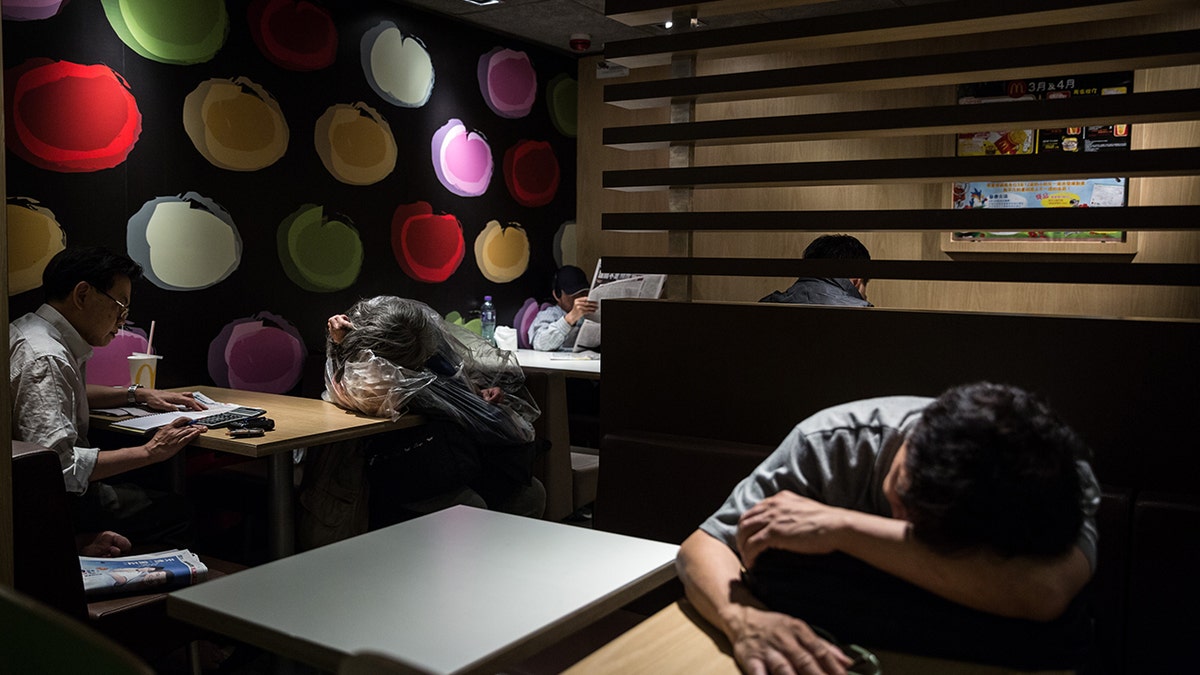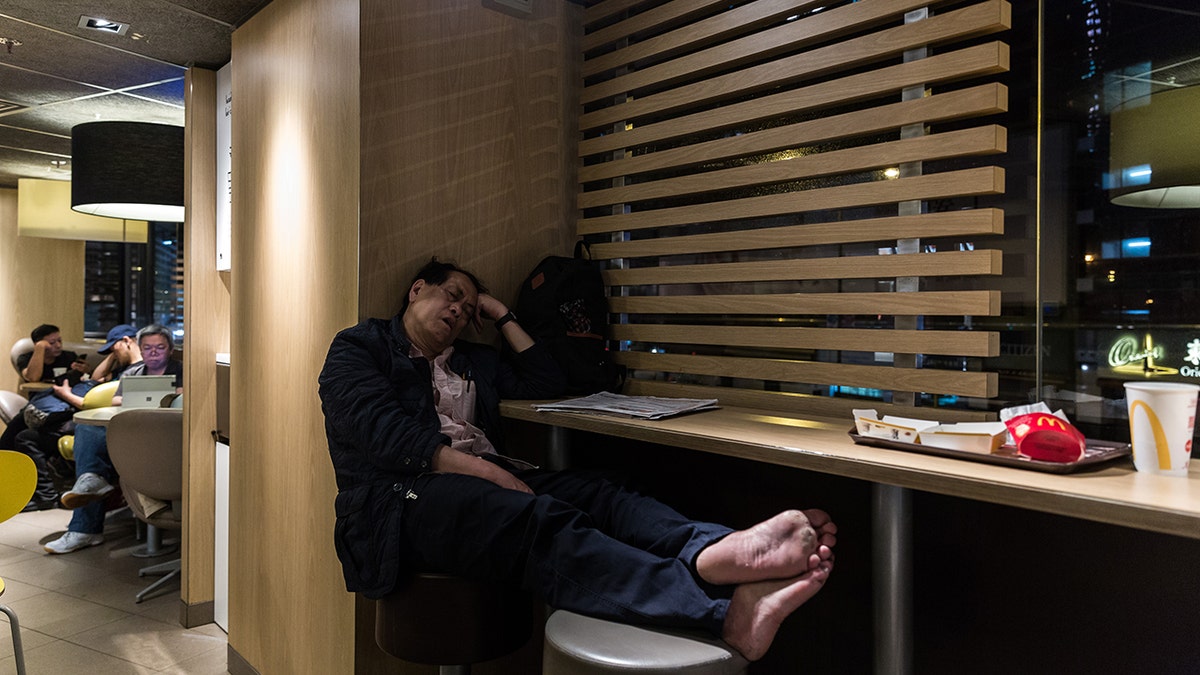
According to a new study, 84 of 110 24-hour fast food branches have seen regular overnight sleepers. (Getty)
The number of non-homeless people sleeping in McDonald’s restaurants across Hong Kong in southeast China has increased six-fold over the past five years, a new study has found.
The study, organized by Junior Chamber International’s Tai Ping Shan, was conducted in June and discovered that 334 people have slept in a McDonald’s restaurant nightly over the past three months — a six-fold increase from a study conducted in 2013, which showed only 57 people routinely slept in McDonald’s.
MCDONALD'S, CHIPOTLE AND OTHER CHAINS WITH FOODBORNE ILLNESS OUTBREAKS: HOW TO STAY SAFE
According to the research, reported by South China Morning Post, 84 of 110 24-hour fast food branches had seen regular overnight sleepers.
What is unusual about the sleepers, dubbed “McRefugees,” who range between 19 and 79 years of age, is that 57 percent of them have jobs and nearly 71 percent of them had homes that they either rented or owned.

The trend is partially fueled by rising rents and substandard housing the makes life "unbearable" during the summer months. (Getty)
The trend is partially fueled by rising rents and substandard housing the makes life "unbearable" during the summer months, South Morning China Post reported.
MCDONALD'S SPENT $25 MILLION APOLOGIZING FOR MAN'S MONOPOLY SCAM: REPORT
The McRefugess instead turn to the fast food chain to sleep to save on air conditioning costs as well as transportation costs. Some of the McRefugees stated that unaffordable housing forced the poor into unsafe living conditions — many of which do not have any windows — that led them to seek safe shelter at the fast food chain, South China Post reported.
Tai Ping Shan publication commission chairwoman Jennifer Hung Sin-yu said to South Morning China Post, “Even one person who has a home but cannot return is too many. This phenomenon is worth our attention.”
FOLLOW US ON FACEBOOK FOR MORE FOX LIFESTYLE NEWS
Hong Kong has been ranked number one for least affordable housing for the past eight years. South Morning China Post reports that the average waiting time for families or elderly people on the waiting list for public rental housing is five years and one month. As of March, there were 270,000 people on the waiting list.




















